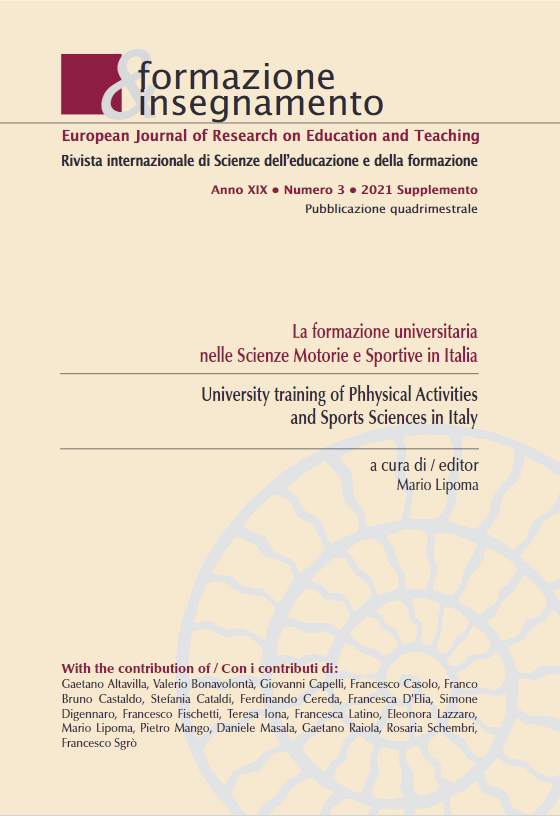From university education in sport and exercise science to the profession
DOI:
https://doi.org/10.7346/-feis-XIX-03-21_05Abstract
The shape of modern society makes the problems associated with regular exercise increasingly topical. At the same time, there is the question of teach-ing modern forms of movement that attract the attention and interest of mil-lions of people in Italy and throughout the world, who turn to public and private facilities offering services for motor activity, from the most traditional to the most modern. These are places where the work is no longer one of motor or sports activities promotion, but one of training and education. Places that involve children, adults in various age groups, the elderly and, for several years now, people with stabilised chronic diseases who manage to maintain and improve their state of health through physical exercise and gen-tle sporting activity. The main professional figures present in these contexts, as instructors and personal trainers, represent the point of contact between the environments where these activities are offered and the people who practice them. Given the preventive aspect of physical exercise, the close connection with health status, the increase in the number of adult and elderly practitioners with chronic illnesses, and the countless professional prospects, it is becoming increasingly important to combine the academic knowledge of exercise and sports sciences with the skills needed by those who, in these environments, are then responsible for educating on proper movement and, indeed, teaching how to do it. The curricular university internship is the transition phase between education and employment. This essay presents data on curricular internships undertaken by students on the L-22 degree course at the Università Cattolica del Sacro Cuore in Milan.
Downloads
Published
How to Cite
Issue
Section
License
Copyright (c) 2022 Pensa MultiMedia

This work is licensed under a Creative Commons Attribution 4.0 International License.
Formazione & insegnamento is distributed under Attribution 4.0 International (CC BY 4.0).
For further details, please refer to our Repository & Archiving Policy, as well as our Copyright & Licensing Terms.





